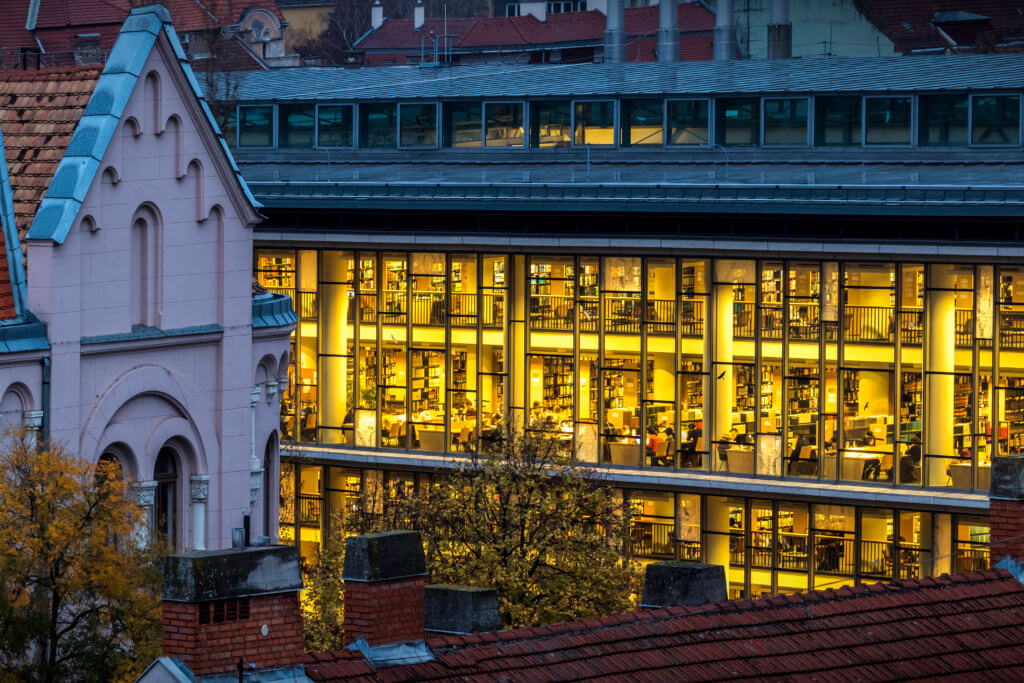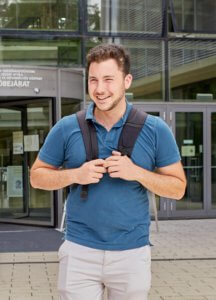There are many compelling reasons to choose the University of Szeged, Hungary (SZTE). According to the QS World University Rankings, SZTE is among the world’s best 400 universities by subject ranking (Medicine and Life Sciences) and is placed between 551-560 as the best Hungarian University. It is furthermore the ninth greenest city centre institution (UI GreenMetric World University Rankings). Yet, one thing trumps above all: the unparalleled brand reputation.
Ayman El-Farouki, a British citizen of Palestinian descent, had one clear goal: to train as a medical professional within one of the best education systems. After searching around the UK and Europe, he successfully gained admission into SZTE..
Chang Yong Lee of South Korea, a third year General Medicine student and elected representative of his cohort, applied for the same reason. “SZTE is one of the best universities in Europe, not only in basic medicine, but also in clinical medicine.”
Being the home of two famous professors has certainly helped SZTE to solidify its prestigious name within the medical education fraternity. Albert Szent-Györgyi (1937) won the Nobel Peace Prize for his scientific work on Vitamin C, and more recently, Katalin Karikó — honorary doctor, research professor and alumna of the university — pioneered the mRNA vaccine that turned the tide of the COVID-19 pandemic.

University of Szeged, Hungary’s library is ranked 13th among the world’s most amazing 50. Source: University of Szeged, Hungary
What’s more, SZTE has 30 years of experience in English Language Medical Education – something that international students would greatly appreciate in a European university, given the multiple languages spoken in that continent. Add in the cosmopolitan yet small-sized Szeged town, and you can see why nearly 5,000 students come to SZTE from 130 countries.
“The international nature of the city and all of the students automatically immerses you into a community, so it really didn’t take long to settle down. The city is a perfect size to get around for a student,” El-Farouki shares, adding that he immediately felt at home there upon his arrival.

Ayman El-Farouki, a sixth year medical student, relishes his time spent at the University of Szeged, Hungary. Source: University of Szeged, Hungary
Lee agrees. “Szeged’s atmosphere allows students to study and interact freely with others. People here are very kind and polite, and Szeged’s infrastructure is well developed; I took less than a week to adapt myself.”
In addition, Szeged town is the sunniest in Southern Hungary, and hosts many festivals on top of being lively. Little wonder that Szeged is ranked among the top 10 university towns in Europe by Conde Nast Traveler.
Furthermore, Hungary is part of the European Union (EU) and a member of the European Higher Education Area – SZTE thus enjoys EU-accredited status. This means upon graduation with their globally-recognised medical degree, SZTE students can explore EU and international work possibilities – a major selling point, made more meaningful when the world is currently facing a shortage of healthcare professionals.
That is why for Lee, becoming a doctor in Hungary presents many options for him to pursue medical activities as a physician in different countries. El-Farouki concurs: “Once I graduate from here, my career path will be wide open. I will be able to work anywhere in Europe without having to do extra qualifying examinations.”
At the same time, SZTE’s medical programmes for international students are designed to train them to become highly qualified medical experts. These programmes include General Medicine, Dental Medicine, Pharmacy, Nursing and Physiotherapy. All students build a solid foundation in theory and practice, and can specialise in a huge number of fields.
SZTE’s facilities are outstanding as well. For instance, their university library is ranked 13th among the world’s most amazing 50; their one-of-a-kind “skills labs” are simulation laboratories that enable students to acquire basic and specific clinical skills in a safe and secure environment before practising on live patients. These left a deep impression on both Lee and El-Farouki.
That’s not to forget their highly interactive study environment either. Through small group “practice” sessions, SZTE students can easily forge greater personal connections with amicable professors — a sight becoming less common at other European universities.

Chang Yong Lee, a third-year medical student, is grateful for his professors’ belief in him. Source: University of Szeged, Hungary
Lee recalls a memorable incident that speaks volumes about the dedication of his professors. “I failed the first year Anatomy Semi Final exam and had to repeat this in the following summer. I was bowing my head in shame and disappointment; at that moment, my seminar professor came up to me and said ‘I will never give up on you.’ She kept asking me questions during the seminar, and made sure I understood the material so that I could prepare for the exam. Thanks to her kind care, I have successfully passed the subject.”
El-Farouki sums up SZTE best: “After being in Szeged for years, I do not regret my time here. My confidence has grown 10 times more than what it used to be, not just in my academic capabilities but also in regards to my personal attributes in daily life as well.”
If you are goal-oriented, hardworking and have a passion for health sciences, apply to SZTE today.
Follow the University of Szeged, Hungary on Facebook, YouTube and LinkedIn











